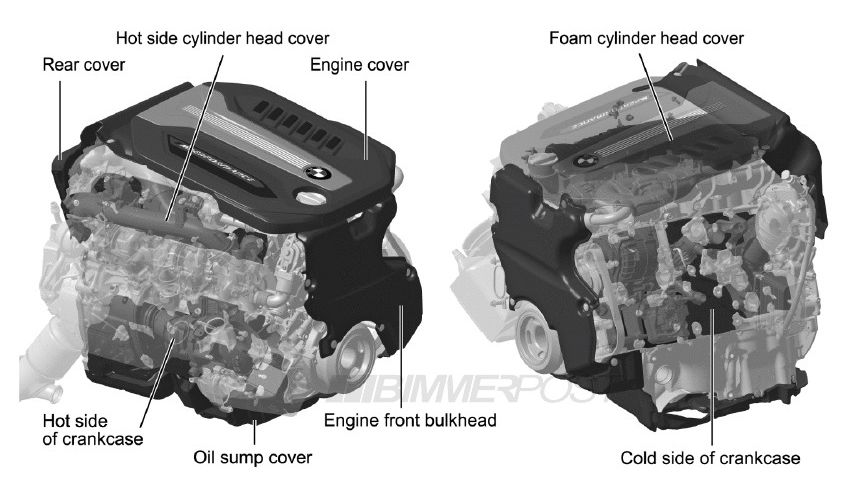While most U.S. buyers continue to stay away from diesel engines -- and that's not likely to change anytime soon due to last year's "Dieselgate"->ke5301 scandal -- the oil burner remains a popular choice in Europe, where cars running on this fuel make up about 50 percent of the market (compared to only three percent in North America). All mainstream automakers offer at least one diesel option nowadays, while premium manufacturers such as BMW,->ke178 Mercedes-Benz,->ke187 and Audi->ke14 provide performance-oriented, yet still efficient oil burners. BMW, for instance, used to offer a massive 4.4-liter V-8 in the E65 7 Series->ke323 before switching to the tri-turbo, 3.0-liter inline-six in the F01 generation. Now, the tri-turbo is being retired to make room for brand-new diesel that has four turbochargers.
Set to make its debut in the 750d xDrive model that previously used the tri-turbo, the new quad-turbo oil burner cranks out 394 horsepower form 4,000 rpm and a whopping 561 pound-feet of torque from 2,000 rpm. That's an impressive 79 horses and 61 pound-feet more than the 3.0-liter six-cylinder in the 740d and an 18-horsepower and 15-pound-feet increase over the previous-generation 750d. Performance is also impressive, with the upcoming 750d expected to hit 60 mph in only 4.5 seconds, a benchmark that makes it only two tenths slower than the V-8-powered, gasoline 750i xDrive model.
More powerful than any other diesel developed by BMW thus far, the new quad-turbo unit is also more fuel efficient. BMW doesn't give specific numbers, but claims that fuel consumption has been reduced by five percent. The new diesel engine will mate to the same eight-speed automatic available across the entire 7 Series lineup. No word on pricing yet, but we'll be back with info as soon as BMW spills the beans.
Continue reading for the full details.
Why it matters
Granted, performance-oriented diesels aren't exactly new to the market. The previous BMW 750d had a generous 381 horsepower and 546 pound-feet of twist at its disposal, while the 4.2-liter TDI in the current Audi A8 cranks out 345 horses and 590 pound-feet. However, BMW's new inline-six stands out as the first production quad-turbo oil burner. Also, if BMW's claims are to be believed, the 750d will also become the quickest diesel-powered full-size luxury car as well as the most efficient performance diesel model on the market. Oil burners might have taken a hit with the "Dieselgate" scandal in 2015, but it's engines like this that prove that the technology is far from dated and that diesel powerplants can be enhanced for public use beyond our wildest dreams. With downsizing already a trend in the diesel market, quad-turbocharging will probably become the norm in a couple of years. Meanwhile, BMW has plenty of time to promote its new engine and use its outstanding combination of power and fuel economy to attract more customers into its dealerships.
Unfortunately, the quad-turbo six-cylinder has yet to be confirmed for the U.S. and it's unlikely that it will offered here anytime soon.
BMW 7 Series
Read our full review of the BMW 7 Series here.

